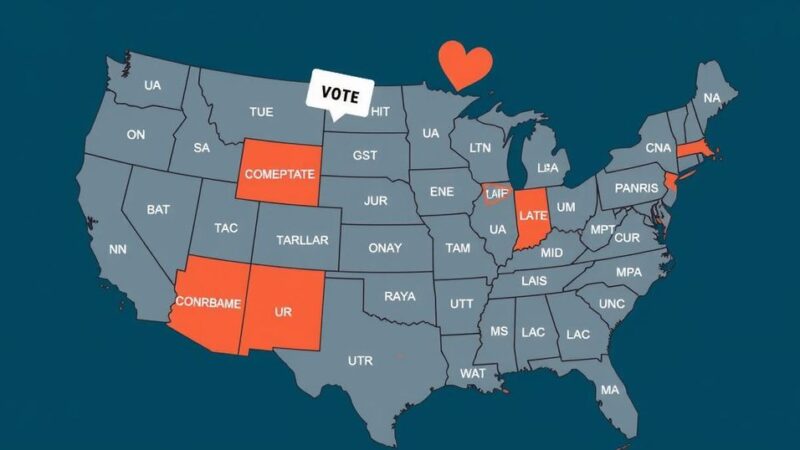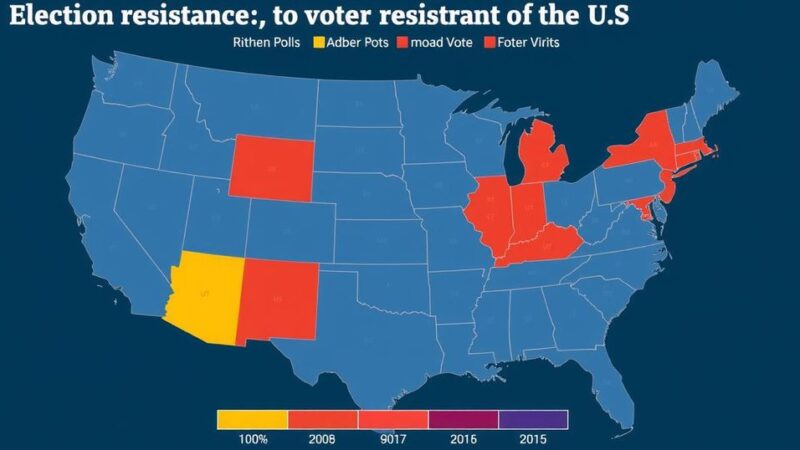The article captures the emotional response to an election outcome that sparked fear and confusion among marginalized communities, particularly as it relates to race, gender, and immigration. The author’s identity as a Black and Guatemalan woman is at the forefront of her experience, emphasizing the challenges of racism, the importance of bodily autonomy, and the immigrant experience. The text calls for collective dialogue and action to address the systemic inequalities unveiled by the election.
On the morning of November 6, after a brief rest, I encountered a stark reality reflected in the supportive yet sorrowful messages from my parents. This election left many, including myself, grappling with feelings of fear, confusion, and a profound sense of vulnerability that resonated across various personal identities. My experience as a Black and Guatemalan woman is interwoven with the overarching societal impacts stemming from the election outcomes, which have fundamentally influenced my identity and outlook on the future. As a mixed-race individual, I celebrate my heritage, yet the election results stoked fears regarding the potential normalization of racism in society. The return of a leader who once faced legal action for racial discrimination only heightens my anxiety about the safety of my identity in a landscape where racial prejudice may emerge more brazenly. The refusal to denounce white supremacist affiliations during his presidency confirms these concerns, leaving me to wonder how far society will lapse into complacency as bigotry becomes emboldened. The body autonomy issues that women face were starkly featured in this election cycle, underscoring a regressive trend in society. The victory of a side that undermines reproductive rights compels a critical reflection of women’s health rights, particularly concerning the severe disparities faced by Black women in maternal health. The political landscape in which our freedoms are debated deeply impacts my future options and overall well-being. Moreover, as the daughter of immigrant parents, I find the rhetoric surrounding immigration distressing and misaligned with the narratives of resilience and hope that define my family’s journey. The negative framing of immigrants perpetuated by the President contradicts the sacrifices made by my grandmother, who worked diligently to secure her family’s future in America. My grandmother’s pride in her immigrant experience is juxtaposed with the xenophobic sentiments that threaten to tarnish the contributions of countless individuals like her. My aspirations in law and politics intensify amid these social and institutional challenges. The results of this election illustrated a troubling trend: a highly qualified candidate, one who mirrored my own identity, was overshadowed by a less credible counterpart simply based on race and gender biases. While my path in this field was already fraught with obstacles indicated by the statistics that cite only 2% representation of Black women, the recent election outcomes only exacerbate my resolve to continue pursuing my ambitions in the face of such adversity, despite the discouraging messages sent by the electorate. I urge all individuals, regardless of their positions, to engage in earnest discussions regarding the implications of this election. Discomfort may arise as we confront these challenging realities, but it is crucial to acknowledge the lasting impact of political decisions on marginalized communities. Raising awareness about these issues fosters understanding and solidarity necessary to combat the cycles of neglect and fear that pervade our society. Vulnerability and uncomfortable truths must be part of the collective effort to advance justice and equity for all.
The article reflects on the emotional turmoil experienced following an election marked by significant societal implications, particularly for marginalized communities. The author articulates the intersecting identities that shape their perspective, including their racial background, gender identity, and familial ties. The text serves as a poignant examination of the challenges faced by women, people of color, and immigrants, emphasizing how political climates influence personal identities and societal dynamics. The reflections highlight systemic inequalities and the deeply personal stakes tied to political leadership and representation.
In conclusion, the aftermath of the election has provoked deep feelings of fear, vulnerability, and a call to action among individuals belonging to marginalized communities. The author expresses a determination to advocate for equity and justice, urging others to engage in challenging conversations that address these pressing issues. It is imperative that society recognize and respond to the discomfort stemming from political decisions, particularly as they affect the most vulnerable populations. Continued dialogue and advocacy remain essential in fostering an inclusive future.
Original Source: pittnews.com






